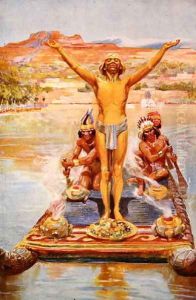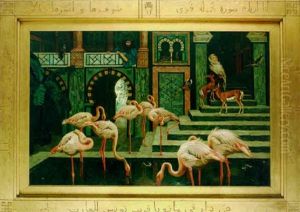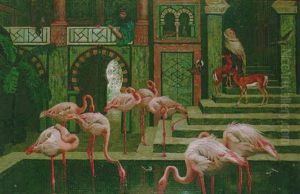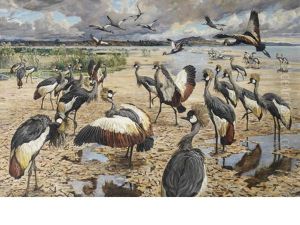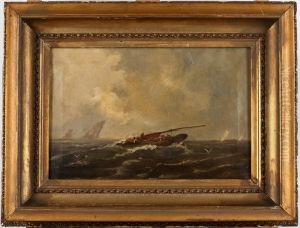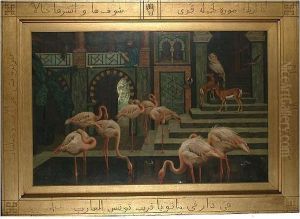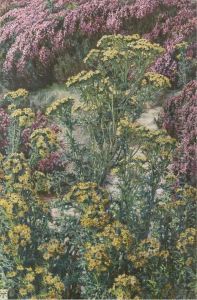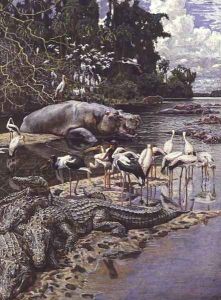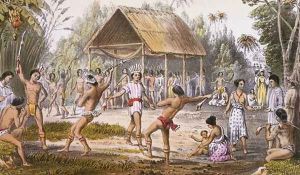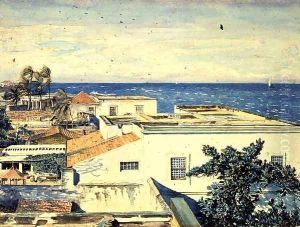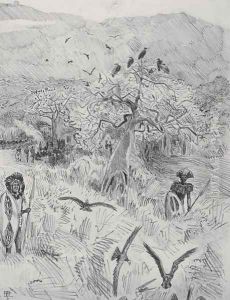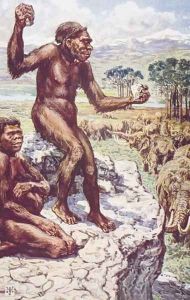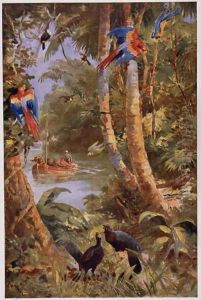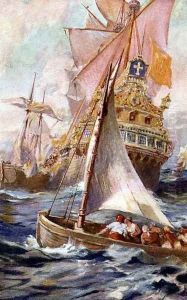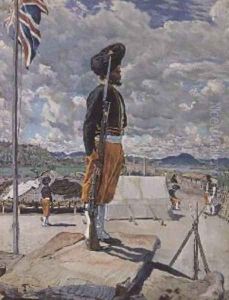Harry Hamilton Johnston Paintings
Harry Hamilton Johnston, born on June 12, 1858, in London, England, was a multifaceted individual who made significant contributions as an explorer, botanist, artist, and colonial administrator. Johnston's early education fostered a keen interest in natural history and languages, which would later become integral aspects of his diverse career. He embarked on his first major expedition to Africa in 1882, which marked the beginning of his lifelong engagement with the continent.
Johnston's exploratory work primarily focused on Central and Eastern Africa, where he was instrumental in mapping uncharted territories and studying local flora and fauna. His efforts in these regions were not limited to exploration; he also played a crucial role in establishing British influence, notably in areas that are now part of Malawi, Uganda, and Kenya. As a colonial administrator, Johnston was involved in negotiating treaties with local leaders, which facilitated the extension of British control and the establishment of protectorates.
Aside from his administrative and exploratory activities, Johnston was a prolific writer and artist. He authored several books on African geography, culture, and politics, blending scientific observation with personal anecdotes. His artistic talent was evident in the detailed sketches and paintings of landscapes and people he encountered during his travels, which were often included in his published works.
Johnston's contributions to botany are also noteworthy. He collected numerous plant specimens, some of which were previously unknown to science and have since been named in his honor. His interdisciplinary approach to exploration, combining art, science, and administration, made him a unique figure in the annals of British exploration and colonial history.
Harry Hamilton Johnston passed away on August 31, 1927, in Woodsetts, Yorkshire, England. His legacy is preserved through his extensive writings, artwork, and the species named after him, reflecting his broad impact on the fields of exploration, colonial administration, and natural science.
